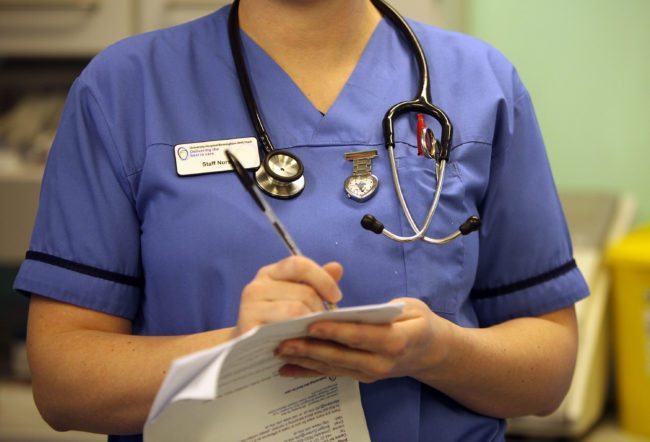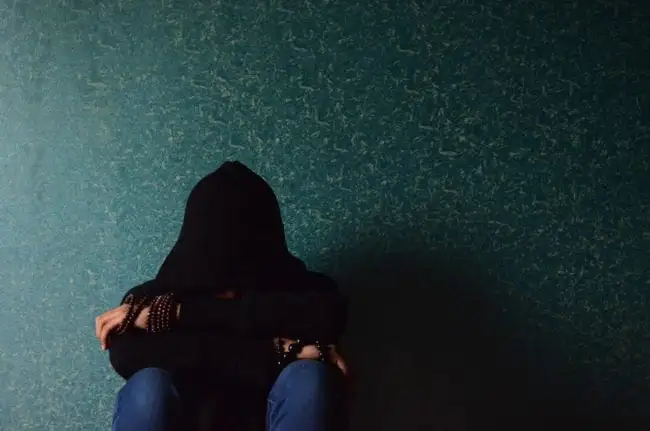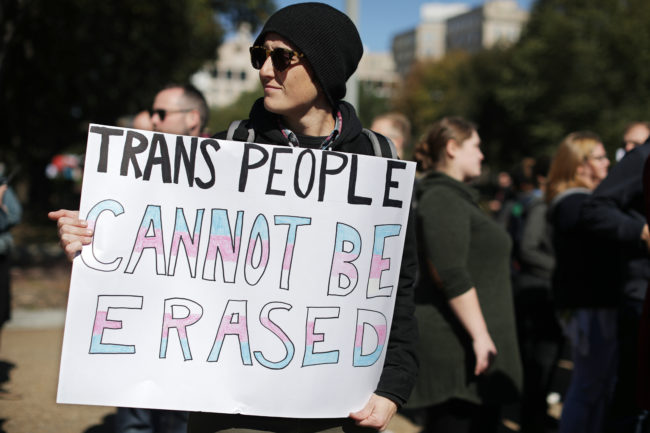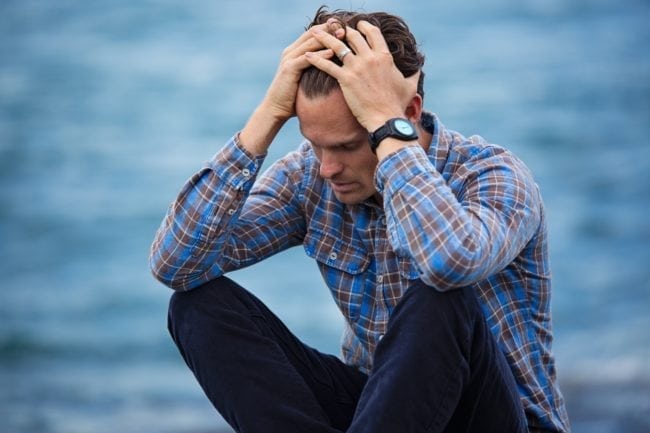LGBT statistics: Over half of LGBT people get depression

Stonewall’s report showed the extent of mental health issues for queer people (Pexels)
LGBT statistics show that half of LGBT people have experienced depression in the past year, according to a new report released by LGBT+ charity Stonewall.
The LGBT in Britain: Health Report also revealed statistics highlighting that three in five—61 percent of—queer people have had anxiety, more than three times the proportion of people in the general population—17 percent—who the NHS says suffer from anxiety, depression and other common mental health issues.
The YouGov study, which surveyed more than 5,000 LGBT people across England, Scotland and Wales, found that queer patients face challenges when seeking treatment from the NHS.

The statistic shows that depression rate is extremely high in the LGBT+ community (Christopher Furlong/Getty)
One in eight patients—13 percent—experienced unequal treatment from healthcare staff because of their sexual or gender identity, while nearly one in four—23 percent—witnessed anti-LGBT comments from these professionals.
One in seven—14 percent—queer people said they were too afraid to seek treatment for fear of being discriminated against.
Tilly, a 42-year-old woman living in Scotland, said that “health professionals ask if I might be pregnant, and when I say no, follow up with: ‘Have you had unprotected sex with your partner since your last period?’ which, even if I had, would hardly get me pregnant.

Many queer patients suffer from issues like depression without seeking treatment (Pexels)
“Having to decide whether to come out to people you hardly know and may never see again is never-ending and a little bit wearying.”
“We are seeing a bleak picture of LGBT health—both mental and physical.”
statistics show that LGBT depression hits trans people hard
The stat results were much more bleak for transgender people, after a year in which reports of anti-trans hate crimes surged by more than a third, according to government figures.
While one in four queer people—25 percent—have faced a lack of understanding of their specific health needs, this figure increases to nearly two in three—62 percent—for trans patients.

Trans people encounter more discrimination in the NHS (Chip Somodevilla/Getty)
The LGBT statistics also show that one in eight trans people—12 percent—have tried to kill themselves in the past 12 months, which is six times higher than the rest of the queer community.
And the number of trans people who have had suicidal thoughts is considerably higher, at 46 percent.
Elijah, 19, said: “I got sectioned after a suicide attempt and the nurse said that my mental health problems were due to allowing Satan in my soul.
“If I just accepted my true gender then God could forgive me.”

69 percent of queer people who have suffered a hate crime have also experienced depression (Pexels)
Sexual orientation hate crimes also rose by 27 percent over the past year, and the Stonewall report showed that anti-LGBT abuse and discrimination, whether in the home, school or work, significantly increased mental health issues like depression.
Depression and anxiety for LGBT hate crime victims
More than two in three queer people—69 percent—who have suffered a hate crime have also experienced depression, while more than three in four—76 percent—have had anxiety.
Stonewall’s director of research, Paul Twocock, said that “simply being lesbian, gay, bi or trans shouldn’t mean you’re at higher risk of experiencing poorer mental health or should have to expect unequal treatment from healthcare services in Britain today.
“Unfortunately, this report shows that for many, it still does.”
He added that his organisation was “seeing a bleak picture of LGBT health—both mental and physical.”

